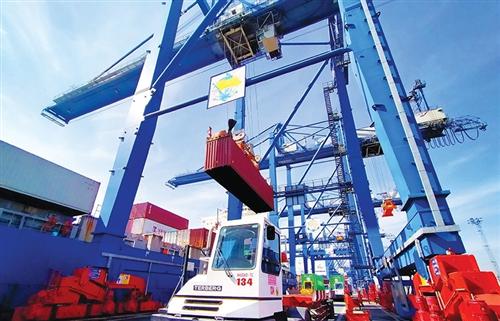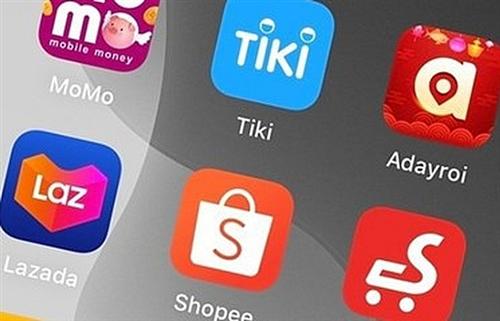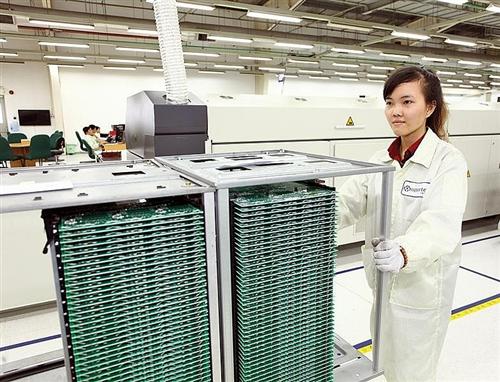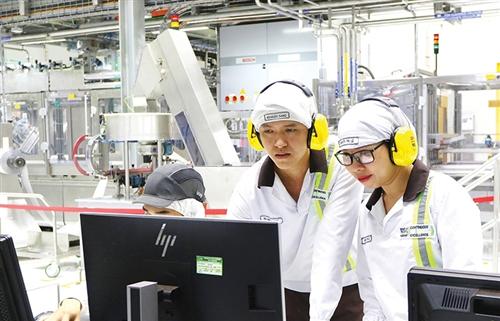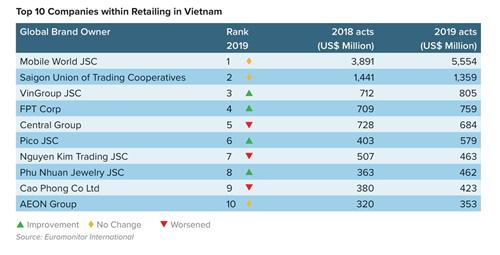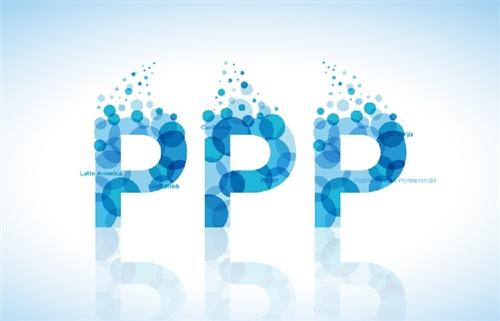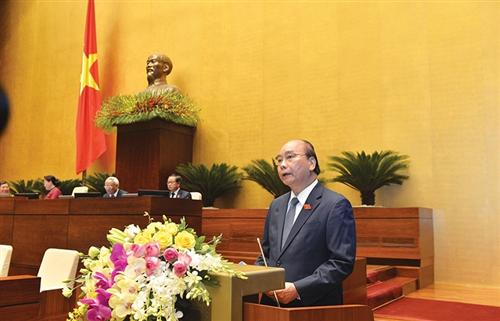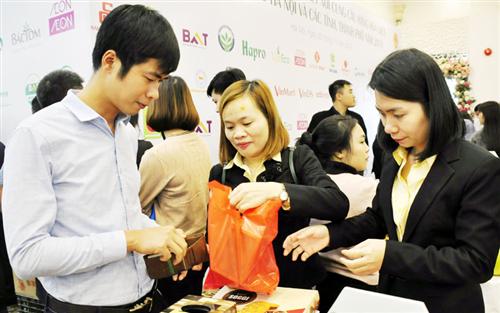Investing frameworks can entice even more
Investing frameworks can entice even more
Starting with the silent move of global smartphone titan Apple, companies have been shifting their facilities to Vietnam, following the call for more lucrative investment opportunities. However, compliance issues with local and international regulations remain as some groups seem to care more about profits and schedules.
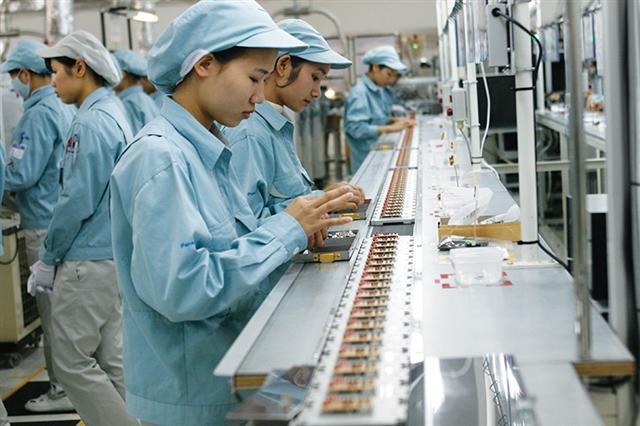
Following fellow industrial giants, Panasonic is also looking to relocate to Vietnam Photo: Duc Thanh
|
Japanese electronics manufacturer Panasonic last week declared a halt in operations of its large washing machine factory in the suburbs of Bangkok and announced it would migrate the facility to a branch in Vietnam. Accordingly, the factory, together with a research and development (R&D) centre in Thailand, will be closed by next March.
Panasonic is aiming for a cost reduction by merging its subsidiaries across many markets, including Vietnam, according to Nikkei Asian Review.
The Japanese group, which entered Vietnam more than 25 years ago, has operated eight facilities in the country with the total registered investment of $243 million, including its largest washing machine factory and R&D centre in Southeast Asia in Thang Long Industrial Park II in the northern province of Hung Yen.
Since the launch of the subsidiary, its manufacturing capacity climbed to about 600 products per day. After shifting to Vietnam, the company could select the Thang Long facility to integrate its manufacturing line from Thailand.
Panasonic is one of many foreign investors wishing to relocate their business to Vietnam. Meanwhile, other overseas behemoths like Apple have been carrying out similar moves.
Unfolding relocation
China-based Luxshare-ICT, one of Apple’s global partners, has been negotiating with Catch Technology to prepare to produce the iconic AirPods in Vietnam. According to a white paper published by Savills Vietnam last year, nearly 20 others are following this example.
Some of these companies are South Korean aerospace manufacturer Hanwha Aero Engine, Japanese carmaker Yokowo, and Hong Kong-based textile producer Huafu Industrial, as well as another of Apple’s assembly partners, Chinese Goertek.
Huafu Industrial has officially moved its manufacturing lines from China to the Vietnamese market, quickly implementing the necessary constructions for the final phase of its 36-hectare facility in Thuan Dao Industrial Zone in the southern province of Long An. Currently, the factory has an annual production capacity of 20,000 tonnes and created jobs for around 3,200 labourers.
Last February, partially state-owned Chinese TCL Technology also carried out the first phase of its 7.3 hectare integrated manufacturing base in the southern province of Binh Duong. The project was expected to be finished within seven months. However, to date, it is still under construction.
Other large Japanese electronics manufacturers like Nintendo, Sharp, and Kyocera are also considering moving their facilities out of the world’s workshop.
According to Jeff Olson, managing partner at Hogan Lovells Vietnam, the country must continue to create an attractive environment for foreign investors. Olson stated that foreign investors want to see continuous movement towards more equal treatment for them and domestic investors, fewer restrictions on business activities, further streamlining of required licensing procedures, greater clarity and consistency in the interpretation and enforcement of laws and regulations.
Compliance issues
Relocating or expanding business lines in Vietnam contributes to reinforcing the trust of already present businesses, especially large-scale ones. However, newly established facilities and their investors must follow local regulations to limit unwanted consequences.
Although the company is a large partner of Apple, Luxshare-ICT in the northern province of Bac Giang’s Quang Chau Industrial Zone received some unwanted attention with the company lacking in compliance with Vietnamese regulations.
Most recently, Bac Giang People’s Committee issued a combined fine of VND340 million ($15,000) for the group’s violations in investment, environmental protection, and construction regulations, as well as labour rights. Accordingly, the company implemented its projects without issuing an environmental impact assessment report, built several structures, which were not mentioned in the granted construction licence, and illegally recruited nearly 700 Chinese experts and workers.
Luxshare-ICT, which was established in Vietnam in 2016 and has a second factory in the central province of Nghe An, registered VND4.19 trillion ($182 million) in the Bac Giang facility last year.
“It is not only a lesson about attracting foreign-invested projects without paying attention to responsibility and potential of the investors but also shows the oversight of local authorities in monitoring the company’s operation, where the factory is located,” economist Nguyen Tri Hieu told VIR.
Last August, the Politburo issued Resolution No.50-NQ/TW on orientations to improve institutions and policies to enhance the quality and efficiency of foreign investment co-operation towards 2030. Under which, Vietnam is proactively choosing to attract foreign-invested projects with high-tech content while ensuring high values for the economy following the new foreign direct investment attraction policy in the new era.
According to Hieu, businesses have many contractors, and some oversee facility construction while others provide raw materials or are responsible for recruitment. Therefore, foreign investors tend to depend on the contractors to run business in Vietnam under local regulations. “Many investors care most about the quality of orders that they assign to their partners as well as whether the orders are finished on time,” said Hieu.



